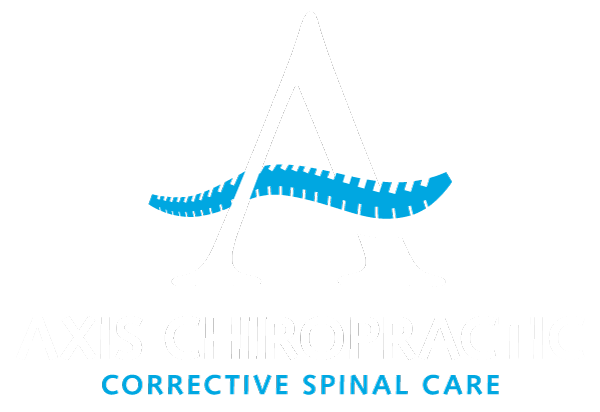Blogs
Can a Chiropractor Help With a Pinched Nerve?

Yes, chiropractors use spinal adjustments and decompression therapy to relieve pressure on pinched nerves, help restore mobility, and prevent the recurrence of symptoms.
Instead of cutting, removing, or medicating nerves, chiropractic care addresses the root musculoskeletal causes of compression, allowing the body to heal naturally.
👉 In this article, we’ll cover the causes and symptoms of pinched nerves and explain how chiropractic treatments can help restore mobility and lasting relief.
To understand how chiropractic care can relieve a pinched nerve, it’s important to first look at what a pinched nerve actually is and why it causes so much discomfort.
What Is a Pinched Nerve?
A pinched nerve occurs when surrounding tissues, such as bones, discs, muscles, or ligaments, put too much pressure on the nerve.
This compression disrupts normal nerve function, resulting in pain and discomfort in various parts of the body.
Symptoms of a Pinched Nerve
Pinched nerve symptoms can range from mild discomfort to severe functional limitations:
Mild: Occasional tingling, numbness, or “pins and needles” sensations in the affected area.
Moderate: Burning or radiating pain into the arms, hands, legs, or feet; muscle weakness that interferes with daily activities.
Severe: Significant loss of strength, difficulty walking or standing, or loss of coordination and grip strength.
Identifying symptoms is only part of the picture; to truly resolve a pinched nerve, we also need to understand what causes it in the first place.
Causes of Pinched Nerves
Pinched nerves rarely have a single cause. They usually develop from a combination of lifestyle factors that place stress on the spine, resulting in structural changes that compress nearby nerves.
Lifestyle & Postural Triggers
- Poor posture, such as slouching at a desk or constantly looking down at a phone, increases pressure on the cervical and lumbar spine, accelerating disc wear.
- Repetitive motions like lifting, twisting, or high-impact sports can cause microtrauma that inflames soft tissues and compresses nerve pathways.
- A sedentary lifestyle or excess weight can reduce blood flow to the spine, weakening the spinal discs and increasing pressure on nearby nerve roots.
- Injury or trauma, including car accidents or sudden impacts, may cause joint misalignment (subluxation) or disc bulging, leading to acute nerve irritation.
Over time, these postural and behavioral patterns alter the body’s biomechanics, leading to structural degeneration that directly compresses spinal nerves.
Structural Consequences
Herniated Disc: Disc material protrudes outward and presses on the spinal nerve root, interrupting neural transmission. Research shows that up to 90% of sciatica cases are linked to lumbar disc herniation.
Spinal Stenosis: The narrowing of the spinal canal reduces the space available for nerves, causing continuous irritation, numbness, and pain in the arms or legs.
Bone Spurs and Degenerative Arthritis: Excess bone growth (osteophytes) forms as the joints wear down. But these spurs can press on nearby nerves, causing pain in the neck or lower back.
Because the signs are not the same, it’s essential to distinguish between a pinched nerve in the neck and one in the lower back to clearly understand the condition and choose the appropriate chiropractic approach.
Pinched Nerve in Neck vs. Lower Back
Pinched nerves can occur anywhere along the spine, but symptoms differ depending on whether the compression happens in the cervical or lumbar region.
Cervical Pinched Nerve (Neck)
- Pain often radiates into the shoulders, arms, and hands.
- Numbness, tingling, or weakness may affect grip strength and upper-body coordination.
Lumbar Pinched Nerve (Lower Back)
- Pain may shoot into the hips, buttocks, or legs (sciatica).
- Tingling, numbness, or weakness can appear in the legs or feet.
Why it matters:
Because each area affects different nerve pathways, chiropractors tailor their adjustments accordingly. Techniques for the neck differ from those for the lower back to ensure safe, precise, and effective relief.
How Chiropractors Treat Pinched Nerves
When you visit a chiropractor for a pinched nerve, the primary goal is to relieve the pressure on the affected nerve and restore normal function.
Chiropractors achieve this by focusing on the spine and musculoskeletal system rather than masking symptoms with medication.
Spinal Adjustments & Realignment
Chiropractic adjustments are precise, controlled movements that help realign the spine. By correcting misalignments, chiropractors reduce nerve compression, allowing the body to heal naturally.
At Axis Chiropractic, we use Chiropractic BioPhysics® (CBP), a science-based method known as Foundational Correction.
Unlike temporary relief techniques, CBP works to restore long-term spinal balance, helping patients regain mobility and prevent future episodes of pain.
Non-Force and Soft Tissue Techniques
For patients experiencing acute pain or heightened sensitivity, chiropractors may use gentle, non-force methods such as:
Flexion-Distraction Therapy: A traction-based technique performed on a specialized table to gently stretch the spine, reduce disc pressure, and promote healing.
Pelvic Blocking: Cushioned wedges are placed under the pelvis to improve lower spine alignment and decrease tension on nerves.
Activator Method: A handheld device delivers quick, targeted impulses to improve joint motion without strong manual force.
Spinal Decompression Therapy: A gentle, motorized traction that stretches the spine to reduce disc pressure, relieve nerve compression, and support natural healing.
Chiropractors may also utilize soft tissue therapy to reduce inflammation, alleviate muscle tightness, and promote nerve recovery.
When to See a Chiropractor for a Pinched Nerve?
Most pinched nerves respond well to chiropractic care, especially when treated early. You should schedule a visit if you experience:
- Pain lasting longer than 1–2 weeks without relief.
- Numbness, tingling, or weakness in the arms or legs.
- Pain that worsens with movement or interferes with sleep.
Red flag: If you lose bladder or bowel control, or experience sudden loss of balance, seek immediate medical attention.
These signs indicate a severe spinal emergency that requires hospital care, not chiropractic adjustment.
What to Expect During Chiropractic Care for a Pinched Nerve
Your first visit usually includes:
1. Comprehensive evaluation: Health history, physical exam, and orthopedic tests.
2. Diagnostics: X-rays or MRI (if needed) to pinpoint the cause of nerve compression.
3. Personalized treatment plan: Tailored adjustments and therapies depending on whether the pinched nerve is in the neck or lower back.
Healing Timeline
- Mild cases: improvement within 2–4 weeks.
- Moderate cases: 6–8 weeks of consistent care.
- Severe herniations: several months, possibly combined with other therapies.
Safety & Risks
- Mild soreness is common after initial adjustments and usually resolves quickly.
- Rare complications, such as temporary worsening of pain, are closely monitored.
Licensed chiropractors are trained to recognize these situations and will refer patients to a neurologist or surgeon if needed, ensuring patient safety at all times.
Benefits of Chiropractic Care for Pinched Nerves
- Drug-free pain relief without dependency on medication.
- Non-invasive approach compared to surgery.
- Improves posture and spinal alignment.
- Restores nerve function and helps patients regain mobility.
- Prevents recurrence by addressing the root cause, rather than just the symptoms.
Alternatives and Complementary Treatments
Option | Approach | Pros | Cons |
Chiropractic Care | Spinal adjustments & decompression | Non-invasive, drug-free | Requires ongoing visits |
Physical Therapy | Strengthening & rehab exercises | Builds stability | Slower results |
Massage Therapy | Muscle relaxation & circulation | Reduces tension | Short-term relief |
Stretching & Exercise | Guided mobility routines | Prevents recurrence | Risk if done improperly |
Lifestyle Changes | Ergonomics, posture, weight control | Long-term prevention | Requires consistency |
Surgery | Disc removal or decompression | Definitive relief in severe cases | Invasive, longer recovery |
Frequently Asked Questions
How long does it take to heal?
Mild pinched nerves typically heal within 2–4 weeks, while more severe cases may take several months.
Can chiropractic make a pinched nerve worse?
When performed by a licensed chiropractor, adjustments are safe and rarely worsen the condition.
Is chiropractic care safe during pregnancy?
Yes, with special techniques designed to reduce strain and protect both mother and baby.
Will insurance cover chiropractic care?
Many insurance plans cover chiropractic treatment for pinched nerves. Patients should confirm with their provider.
Expert Chiropractor in Charleston, SC
At Axis Chiropractic, we help patients in Charleston, Mount Pleasant, and Summerville find lasting relief from pinched nerves. Our CBP® approach focuses on long-term correction, not just short-term pain management.
👉 Don’t wait for nerve pain to take over your life. Schedule a consultation today and discover how chiropractic care can help you restore function, prevent recurrence, and live pain-free.

Free Initial Consult
Call: 843-225-1236
Please allow us up to 24 hours for a response. Should this be an urgent matter, please call the office directly. Thank you.

